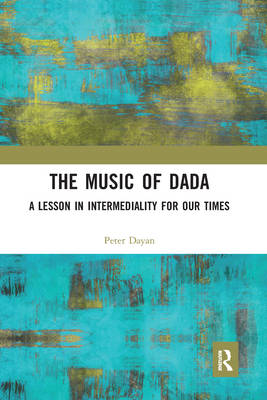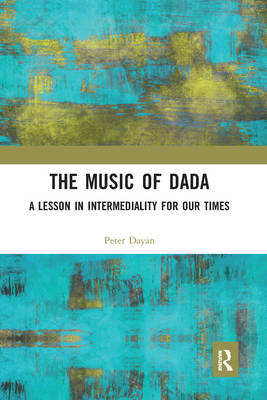
- Retrait gratuit dans votre magasin Club
- 7.000.000 titres dans notre catalogue
- Payer en toute sécurité
- Toujours un magasin près de chez vous
- Retrait gratuit dans votre magasin Club
- 7.000.000 titres dans notre catalogue
- Payer en toute sécurité
- Toujours un magasin près de chez vous
Description
100 years after the Dada soirées rocked the art world, the author investigates the role that music played in the movement. Dada is generally thought of as noisy and unmusical, but The Music of Dada shows that music was at the core of Dada theory and practice. Music (by Schoenberg, Satie and many others) performed on the piano played a central role in the soirées, from the beginnings in Zurich, in 1916, to the end in Paris and Holland, seven years later. The Music of Dada provides a historical analysis of music at Dada events, and asks why accounts of Dada have so consistently ignored music's vital presence. The answer to that question turns out to explain how music has related to the other arts ever since the days of Dada. The music of Dada is the key to understanding intermediality in our time.
Spécifications
Parties prenantes
- Auteur(s) :
- Editeur:
Contenu
- Nombre de pages :
- 182
- Langue:
- Anglais
Caractéristiques
- EAN:
- 9780367587710
- Date de parution :
- 30-06-20
- Format:
- Livre broché
- Format numérique:
- Trade paperback (VS)
- Dimensions :
- 156 mm x 233 mm
- Poids :
- 452 g







